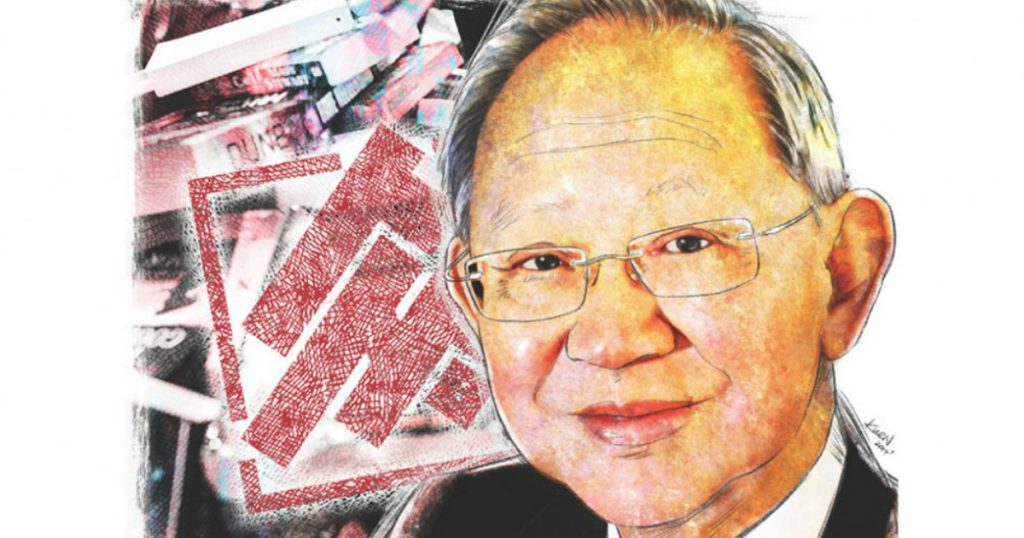E-commerce is the new forefront on shopping, and with it comes a toll on traditional brick-and-mortar shopping.
In Singapore, shopping mall vacancies have hit an all-time high in the recent decade, with more empty lots and fewer shoppers. In Orchard Road, also known as the local shopping district, weekend crowds have also thinned with shoppers commenting that they would stay out of the area unless necessary.
The rise of the e-commerce industry has left many retail store owners in a tizzy over the sustainability of offline shopping considering the perks of online shopping.
2 years ago, Mr Tang Wee Sung of TANGS noted that brick-and-mortar shopping will continue to stand strong against e-commerce, and 2 years later, bookstore Popular’s CEO Chou Cheng Ngok is also taking the same stand.
In a live interview with Channel NewsAsia, Chou stated, with much conviction, his confidence that e-commerce will not kill brick-and-mortar shops.
Some Might Think Him Stubborn

But I believe otherwise.
Though, in fact, he does pride himself on being a stubborn man, citing that book selling is eternal “as it is part of human civilisation […] Dinosaurs died because they failed to evolve. Human beings can evolve.”
Popular bookstore retails some of the most easily purchased items that one could get online. After all, pens do not come in S, M and Ls that require you to find the exact fit before you can make a purchase.
It seems almost logical that people might turn to e-commerce for what Popular retails, so why is it that their annual revenue is still managing to keep steady?
We take a look at some of the strategies that have kept the brand in the running.
1. Variety Makes Popular, Popular
According to Chou, bookselling by itself is not lucrative, which is why he started introducing other products based on the related needs of people shopping for books. In fact, more than half of Popular’s revenue comes these other products, which range from stationery to snacks and assessment materials.
Embracing variety also entails embracing the changes it brings about.
Traditional shops are not able to survive for long often because they are trapped in the status quo, or are maybe adamant against incorporating technological changes. But for those willing to accept the co-existence of old and new, it also means that they are able to move forward.
But if nothing else, take it from the experience of someone who has admitted that if not for diversification, Popular would “not be where it is today“. And with a history of 90 years and running, it’s safe to say that this strategy, works.
2. It’s Not All About Passion
As noted by Chou, many people are “very idealistic – they’ll say I want to do what I like. I want to do what I’m interested in.” But this may also translate to one major flaw – they do not consider what they need to do.
Chou admitted that he never had interest in being a businessman, but it was a business handed down to him by his forefathers and he simply approached its growth as the “right thing to do”, rather than because he had a genuine passion for the job.
While it is important to play hard, it is also important to work hard, and in his own words, “Chinese businessmen never retire. They just drop dead.”
In terms of survival, this piece of advice doesn’t hold just for traditional stores but also the millennial generation. Passion is a reigning factor for many in this demographic, especially startup founders, who place a high priority on interests, and the need to love what they do.
But sometimes, one needs to remember that to stay competitive, it’s less about passion and more about needs.
3. Repackaging Boring Content

As noted by Chou, physical books are not a sunset industry as the demand for them will always be there. But as the market needs for books change, booksellers must also be sensitive to these changes in order to continue to appeal to consumers.
He admits that his bookstores aren’t the most attractive out there, but fairs were, so he created the annual Popular BookFest.
And it worked.
Many visitors to the BookFest were actually people who never visited a bookshop, and via the Fest, he was able to introduce the Popular brand to a wider audience.

Everyone is different in one way or another, with their unique take or perspective to offer. However, they are often shot down because the packaging in which their service is offered does not appeal.
The success of the BookFest however, also represents that if one is smart enough, or creative in preparing the packaging, offline shopping can also appeal to consumers despite the ease of online book shopping.
Surviving The E-Commerce Revolution
Popular is a prime example of how brick-and-mortar stores can compete with e-commerce.
Traditional store holders have to understand that as technology evolves, it is imperative that retailers too keep up. Stagnancy is a surefire way to fall behind, and admittedly it is not easy to transition into a brand-new smart world where the market demand and patterns have changed so drastically.
But when we embrace change and integrate it into our own lives, we may find that rather than disrupting our lives, they can propel us further forward instead.
Featured Image Credit: scmp.com
Also Read: Lazada And Amazon Are Set For An E-Commerce Rumble In 2017, And Singapore Is Their Stage













